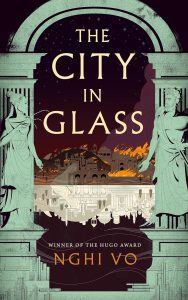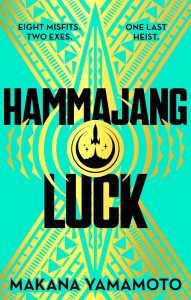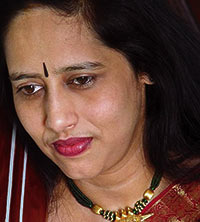The Year in Review 2024 by Alexandra Pierce

I’m going to focus here on the best books I read this year by women and nonbinary folks, and also separate them into a few categories; I need some way to organise my thoughts.
Novellas
Three amazing novellas stand out for 2024. Ann LeBlanc’s debut novella, The Transitive Properties of Cheese is superficially a cheese heist in space; it also has a lot to say about bodies and identity and what it means to be embodied. Also, the practicalities of making cheese in space, which is clearly not a topic enough people have given serious thought to and will be indispensable once humans leave the gravity well. Completely different except insofar as it was another spectacular debut novella is Izzy Wasserstein’s These Fragile Graces, This Fragile Heart, which I read while waiting for a delayed train; it made me not feel any dismay at all about having all that extra time on my hands. A technothriller set in a broken postindustrial world not too far distant from our own, like LeBlanc, Wasserstein is considering issues of identity: The main character, Dora, is a security expert and a trans woman still coming to terms with how to live outside of her old anarchic commune, which is now itself under threat. Fast-paced, exciting, and still thoughtful, I’m amazed it’s a debut. And then, very different and quite spectacular is Sofia Samatar’s The Practice, the Horizon, and the Chain. I read this pretty early in the year, and it’s fair to say I have kept thinking about it on and off for many months now. The most banal plot in the world written with the sort of lyricism Samatar displays here, I would love; this is the sort of book that should be on creative writing courses. But Samatar doesn’t do banal. Instead she has taken the idea of a generation ship and, through unnamed characters inhabiting various positions within a grim social hierarchy, she gently and completely breaks apart the realities of how such a ship might function. She’s clearly not just talking about life in the far future, but this isn’t a message in search of a plot. The plot is worth your time – and in other hands could easily have been a trilogy of novels. What Samatar manages to convey in her elegant and restrained prose is astonishing.
Novels
Every year I get to December and think about how happy I am to have read the outstanding novels that have come my way. Firstly: There was a new Sarah Rees Brennan novel. That fact alone was enough to make me stand up and cheer. And then I finally read it, and Long Live Evil scratched an itch I had no idea existed. Falling into a book is no new idea; I’ve read Cornelia Funke and Jasper Fforde, for a start. But falling in and being the one to actually make the plot happen, while existing as the key villain? Genius. And now I have to wait for the next book, and it’s just not fair. So there is something to be said for coming to a series late, and that’s what I did with Juliet E. McKenna’s Green Man series – I only started reading them this year. Which means I got to this year’s The Green Man’s War having waited only a couple of months, and I know that I shouldn’t be as smug as I am but there you go. It’s been a long time since I enjoyed an urban (well, I guess rural, technically) fantasy as much as this; McKenna’s combination of utter realism in her descriptions of ordinary life, alongside druids and wise women and kelpies, is wonderful.
 I also adored two standalone novels this year. I only came to Nghi Vo this year (I know, I know); reading The City in Glass was an absolute joy. A demon who takes a proprietary interest in the life of a city and its inhabitants; an angel responsible for the city’s destruction…. Vo plays beautifully with expectations, and her prose is a delight. And another book where the prose is utterly captivating was Tara Campbell’s City of Dancing Gargoyles, which I read thanks to the recommendation of Ian Mond. This is probably the oddest book I loved this year, and I mean that in the best possible sense. A future America where (probably) something alchemical has made nonhuman things (like trees, and chocolates, and gargoyles) in specific areas have some form of sentience. Written partly as a series of emails, and partly as a straightforward story, Campbell gives us human and gargoyle narrators to explore this very odd yet still familiar world.
I also adored two standalone novels this year. I only came to Nghi Vo this year (I know, I know); reading The City in Glass was an absolute joy. A demon who takes a proprietary interest in the life of a city and its inhabitants; an angel responsible for the city’s destruction…. Vo plays beautifully with expectations, and her prose is a delight. And another book where the prose is utterly captivating was Tara Campbell’s City of Dancing Gargoyles, which I read thanks to the recommendation of Ian Mond. This is probably the oddest book I loved this year, and I mean that in the best possible sense. A future America where (probably) something alchemical has made nonhuman things (like trees, and chocolates, and gargoyles) in specific areas have some form of sentience. Written partly as a series of emails, and partly as a straightforward story, Campbell gives us human and gargoyle narrators to explore this very odd yet still familiar world.
 Debuts
Debuts
Makana Yamamoto’s debut, Hammajang Luck, was the standout debut for me this year. Another heist novel (I love a heist novel), this is set on a space station and follows the classic getting-the-team-together, is-the-stated-outcome-the-real-outcome format that brings me so much joy. Through a set of amusing characters – some low-level crooks, some amateurs – brought together for one exceptional caper, Yamamoto explores different aspects of life on her far-future universe. This is apparently the first of a series of novels set in this reality, and I am already anticipating the next instalments.
Catching up
Finally, I want to note some of the older novels that I caught up on this year. This includes Freya Marske’s wonderful The Last Binding trilogy, a really intriguing queer Edwardian fantasy series whose characters delighted me. And Elizabeth Bear’s Ancestral Night and Machine, a pair of connected, and fabulous, far-future stories about the uses and abuses of technology, and community across vast reaches of space.
It’s weird to mention Cameron Reed’s The Fortunate Fall in this category, to be honest, because although it was first published in 1996 I could easily believe that its reissuing this year was its first publication. A reporter who broadcasts from her brain, a world of massacres and AI thought police, individual love and betrayal: this is a novel that will bear rereading for a long time. So too will Sarah Pinsker’s A Song for a New Day, which also feels like it could have been written more recently than it was – although I’m glad I didn’t read it in the throes of Melbourne’s lockdowns. A love letter to the power of music and art, I adored Pinsker’s vision of community in difficult times.
Heists and villainy, community and identity, urban fantasy and space opera. 2024 has given me an excellent range of fiction.
Alexandra Pierce reads, writes, podcasts, cooks and knits; she’s Australian and a feminist. She was a host of the Hugo Award winning podcast Galactic Suburbia for a decade; her new podcast is all about indie bookshops and is called Paper Defiance. Alex has edited two award-winning non-fiction anthologies, Letters to Tiptree and Luminscent Threads: Connections to Octavia E Butler. She reviews a wide range of books at www.randomalex.net.
This review and more like it in the February 2025 issue of Locus.
 While you are here, please take a moment to support Locus with a one-time or recurring donation. We rely on reader donations to keep the magazine and site going, and would like to keep the site paywall free, but WE NEED YOUR FINANCIAL SUPPORT to continue quality coverage of the science fiction and fantasy field.
While you are here, please take a moment to support Locus with a one-time or recurring donation. We rely on reader donations to keep the magazine and site going, and would like to keep the site paywall free, but WE NEED YOUR FINANCIAL SUPPORT to continue quality coverage of the science fiction and fantasy field.
©Locus Magazine. Copyrighted material may not be republished without permission of LSFF.







